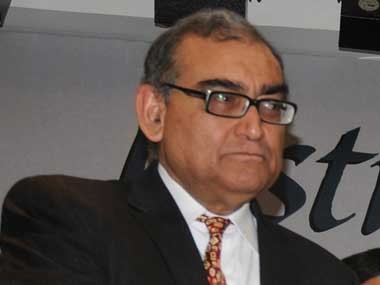
Indian Press Council Chairman Markandey Katju in yet another revelation said that Chief Justices resist exposing corruption in judiciary, fearing political intervention in the judicial system.
Mentioning another case of judicial corruption in his blog on Sunday, Katju claimed that the former Chief Justice of India (CJI) Justice Lahoti covered up corruption allegations against five judges, fearing political take over in the judicial system.
He claimed that he had found those five judges, whose names he did not mention, "doing shocking things" during his tenure as the Acting Chief Justice of Allahabad High Court.
He further wrote that he approached Lahoti and proposed that he be allowed to take stringent actions against them and bar their entry into the High Court for disgracing its reputation.
However, Lahoti denied his proposal and requested him "not do this, because then the politicians will get a handle, and then they will set up a National Judicial Commission," and instead transferred the five judges to another high court.
The CJIs' fear of political intervention, however, became a reality after Katju's first corruption revelation in judicial system.
Following this, the government decided to amend the Judicial Appointments Commission Bill and forming Judicial Appointments Committee consisting of six members—CJI, two senior SC judges, the Union Minister for Law and Justice and two others nominated by the Prime Minister, CJI and the Leader of Opposition of Lok Sabha.
However, they not only feared political intervention, they were also worried about judiciary's reputation.
"Most Chief Justices of India are reluctant to expose corruption in the judiciary thinking that this will defame the judiciary, and so they prefer to bury corruption under the carpet, not realizing that the bulge under the carpet will show," he wrote in his blog.
He also noted that former CJI Justice Kapadia overlooked a corrupt case against a senior and then Acting CJ of Allahabad High Court.
Despite proofs to support his corrupt reputation, Kapadia neither asked for his resignation nor did he take the matter to Parliament, even though Kapadia himself asked Katju, who was then a Supreme Court judge, to dig into the matter for "true facts."
"...I contacted some lawyers I knew, and got 3 mobile numbers of the agents of this Judge through whom he was taking money," he explained.
Katju had also reportedly forwarded the numbers of corrupt judges to Kapadia, and requested him to ask the intelligence agencies to tap the numbers, and the two months call records later confirmed corruption allegations against the judge.

















